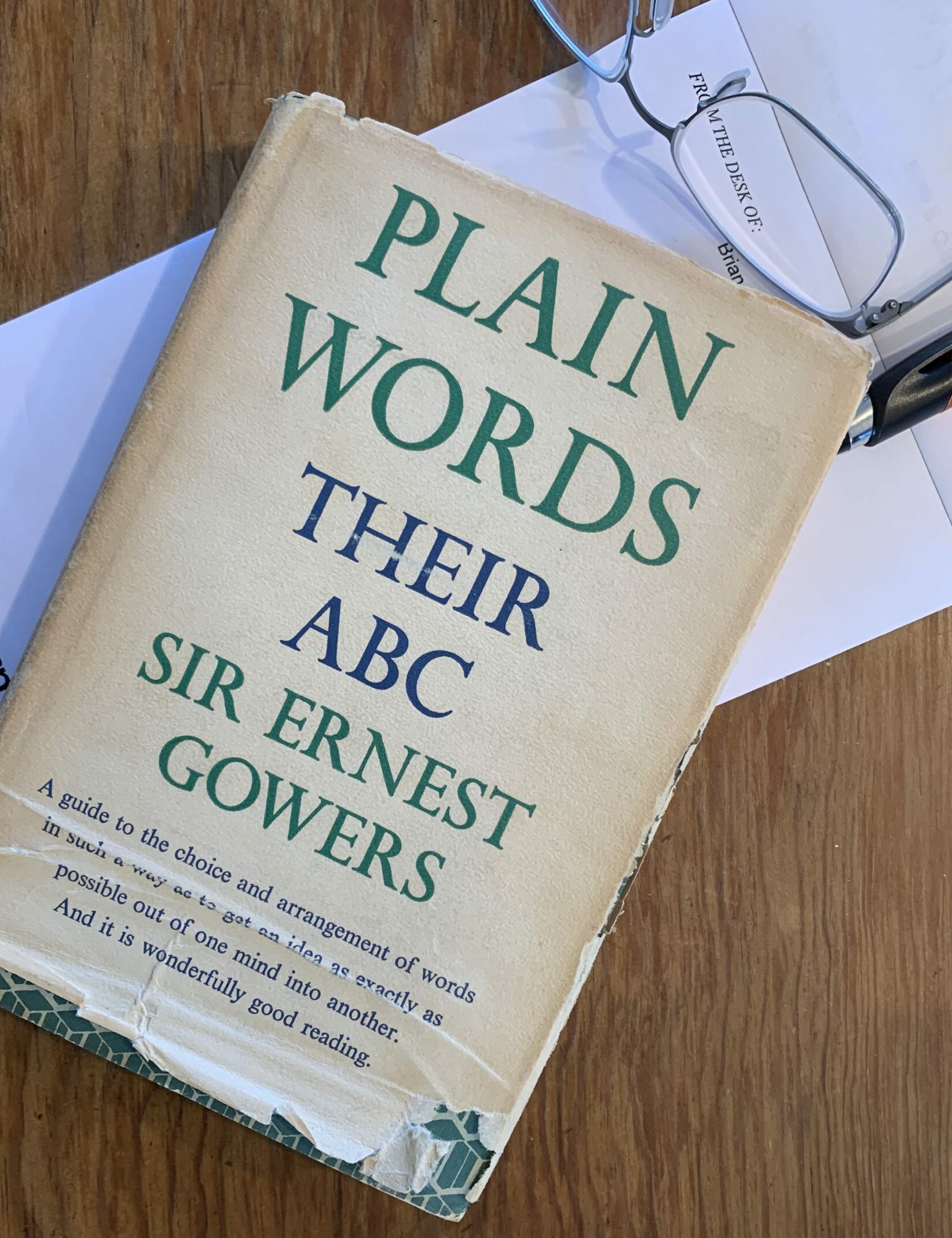“Although thoroughly deserving of all the trappings of formality, and the associated care put into its creation and execution, a contract should nonetheless describe what the parties have agreed to do in plain English that can be readily understood by diverse audiences.”
 In teaching Intellectual Property (IP) licensing for the Licensing Executives Society (USA & Canada), Inc., we often open with the first principle of contracts: the “contract” is the meeting of the minds between the parties. What did they actually agree to? The work of the written agreement is to memorialize that meeting of the minds. It is necessarily imperfect. Sir Ernest Gowers aptly describes the challenge of good writing generally, saying it is “the choice and arrangement of words in such a way as to get an idea as exactly as possible out of one mind and into another.” (Sir Ernest Gowers, Plain Words: Their ABC, Alfred Knopf, New York, 1955). In IP licensing, it is the difficult task of reducing to writing an idea from two or more minds such that it conveys to both what each conceived of as the agreement.
In teaching Intellectual Property (IP) licensing for the Licensing Executives Society (USA & Canada), Inc., we often open with the first principle of contracts: the “contract” is the meeting of the minds between the parties. What did they actually agree to? The work of the written agreement is to memorialize that meeting of the minds. It is necessarily imperfect. Sir Ernest Gowers aptly describes the challenge of good writing generally, saying it is “the choice and arrangement of words in such a way as to get an idea as exactly as possible out of one mind and into another.” (Sir Ernest Gowers, Plain Words: Their ABC, Alfred Knopf, New York, 1955). In IP licensing, it is the difficult task of reducing to writing an idea from two or more minds such that it conveys to both what each conceived of as the agreement.
IP licensing poses peculiar problems for the drafter. The IP is by definition unique, and prior to its discovery by the inventor, unknown. A description of the thing itself is challenge enough. Now, try describing how it is to be commercialized, and how the user is to compensate the owner for its use. Often the stakes are high, and so the choice and arrangement of words is consequential.
What’s more, the agreement must be written for a diverse audience. Initially, it’s written for the parties themselves, both of whom are familiar with the technology and the market (which creates pitfalls of its own). But later, the audience might be a judge, who knows little of the technology or the market. Yet it is the judge who must determine what the parties agreed to, and whether they are abiding by that agreement. Chances are, there will be many other audiences in between those two. And so, the choice and arrangement of words is an intricate exercise, and must take into account various skills and diverse perspectives.
Think Hard Before Using ‘Shall’
Licensing executives tend to be respectful of tradition, sticking to the tried and true. While laudable in some respects, it risks perpetuating unhealthy, hidebound practices. Consider, for example, terms of obligation.
There are those who insist that shall is the definitive word choice to unambiguously state what one is obligated to do; and then there are those who insist they will never use the word shall in such capacity. The better approach is somewhere in between.
In many agreements, adherents to the former approach overuse shall, giving it a variety of jobs to which it is not well suited. This results in a lack of clarity, which can cause uncertainty in meaning and unpredictability in interpretation – a potentially catastrophic result for a carefully negotiated contract that may live on for many years.
The use of shall causes confusion on several fronts. First, it is archaic, and not commonly used in conversational English, American or otherwise. It is often interpreted interchangeably as one must do something, or one is permitted to do something. It might reflect a future intention, or a suggestion or permission, as opposed to an acknowledgement of a commitment or an obligation. Further, it is often used in a passive sense in an attempt to say that something must (or must not) occur, but without providing a subject or an actor to perform the duty, and thus without clear consequence. Abuses are legion, e.g., “Shall we go?”; “A report shall be delivered…”; “Elevators shall not be used in case of emergency.” The confusion is compounded when it seemingly imposes an obligation on one who is not even a party to the contract; and still more so when no actor is contemplated at all.
With that in mind, commentators caution against the use of shall in contracts. See, e.g., Bryan Garner, Garner’s Guidelines for Drafting and Editing Contracts, West Academic Publishing (2019), Sect. 47 “Obligations and prohibitions generally” (generally opposing its use, noting that typically, “shall violates the presumption of consistent usage in a great variety of ways.”); and Kenneth Adams, A Manual of Style for Contract Drafting, ABA Business Law Section (2017), Chap. 3.70 “Language of Obligation” (accepting it as preferred over the alternatives, but subject to certain restrictions).
Sir Gowers acknowledges there is confusion and inconsistency in the use of shall and will amongst the English-speaking peoples.
“Every English text-book will be found to begin by stating the rule that to express the ‘plain’ future shall is used in the first person and will in the second and third: I shall go; You will go; He will go. And that if it is a matter not of plain future but of volition, permission or obligation it is the other way round: I will go (I am determined to go or I intend to go); You shall go (You must go, or you are permitted to go); He shall go (He must go, or he is permitted to go).”
– Sir Ernest Gowers, Plain Words: Their ABC, p. 237-238).
He observes, however, that the “idiom of the Celts is different.”; and that “American practice follows the Celtic, and in this matter, as in so many others, the English have taken to imitating the American.”
The ‘Has a Duty’ Test
In general, there seems to be consensus, however, that the risk of using shall in contract language is mitigated (if not eliminated) if one restricts it to imposing a specific duty on a particular actor who is a party to the contract, and who agrees to assume that duty. Every appearance of shall in a contract should be scrubbed for what Garner and Adams both refer to as the “Has a duty to” test. Does the use of “shall” impose upon a particular party to the agreement an unequivocal duty to perform the specified task? If not, reconsider.
Alternatives to shall are terms we use more commonly. As a term of obligation imposed on a party, I like will. Bear in mind that a predicate of any well-written agreement is the express acknowledgement that “the Parties agree as follows.” By reading that predicate into the various provisions of the contract, we see that the Parties agree, for example, that the Licensee will provide Licensor with quarterly reports of Licensee’s sales. This is consistent with how we commonly express ourselves, and commit to doing something. “Yes, I will do that.” Coupled with the formalities of the contract, it is more than a mere statement of intention or futurity.
Practice tip. Although Sir Gowers’ commentary seems quaint, if not antiquated, it nonetheless remains that the use of shall and will both suffer varietal usage, and thus interpretation. Whether you choose shall or will, consider an “Interpretation” provision such as: “As used herein, the choice of [shall or will] in reference to a Party is a term of obligation meaning that the Party has a duty to do (or not do) the specified act; and, unless plainly stated otherwise, does not describe mere futurity or volition.”
As a word of warning, steer clear of the use of agree as a substitute. The operative introduction to the contract is that the Parties have agreed to what is in the contract (e.g., “The Parties hereby agree as follows”). Subsequent use of the word agree within the body of the contract risks being deemed merely an agreement to agree. That is not usually what is intended deep in the recesses of the contract. The subsequent, and superfluous, use of agree within the contract can frustrate the intentions of the parties. But, by the time the contract is in dispute, one side can be expected to use that ambiguity to advantage.
Some prefer the use of must as an alternative to will in imposing an obligation on a party. I’m not convinced. Rarely do we say that in fulfillment of a promise, we must perform a particular task. It is more common to say “I promise to you that I will do something.”
As with agree above, the choice of must seems redundant on the introductory acknowledgement as to what the parties have agreed to do. If you’ve agreed to do something, you’ve agreed you will do it. Must seems to carry with it the implication that there is an external force or authority at play, and that you are a less-than-willing participant. It suggests that you didn’t expressly and willingly agree to perform the prescribed act, but that something or someone is compelling you to do so.
Must seems more like a condition to be satisfied by a third party, or an inanimate object. Perhaps it refers to an event or an act that the parties agree has to occur by operation of some external force, before a duty passes to a party to the agreement.
The use of may obviously doesn’t fit the bill either. As commonly used, may is purely discretionary. It means that the subject is permitted to do something, if it so chooses. But, it might be something less than an assurance that the desired outcome will be fulfilled, e.g., “Licensee may request an extension”; but, it contemplates that the request for an extension might not be granted. It is something less than entitled, which affords the subject an affirmative right to the prescribed act or option, e.g., Licensee is entitled to a one-time, three-month extension of time.”
Choose Wisely
A contract is a highly stylized, formal, legally binding agreement. Although thoroughly deserving of all the trappings of formality, and the associated care put into its creation and execution, it should nonetheless describe what the parties have agreed to do in plain English that can be readily understood by diverse audiences. Despite the traditional use (overuse and abuse) of the term, shall is not the ideal choice for stating clearly and unequivocally the various commitments and obligations that the parties have agreed to. If you insist on using shall as a term of obligation in your agreements, ensure that, in every instance, it passes the “has a duty to” test. If it does not, you should carefully consider a substitute.

![[IPWatchdog Logo]](https://ipwatchdog.com/wp-content/themes/IPWatchdog%20-%202023/assets/images/temp/logo-small@2x.png)

![[Advertisement]](https://ipwatchdog.com/wp-content/uploads/2024/04/Patent-Litigation-Masters-2024-sidebar-early-bird-ends-Apr-21-last-chance-700x500-1.jpg)

![[Advertisement]](https://ipwatchdog.com/wp-content/uploads/2021/12/WEBINAR-336-x-280-px.png)
![[Advertisement]](https://ipwatchdog.com/wp-content/uploads/2021/12/2021-Patent-Practice-on-Demand-recorded-Feb-2021-336-x-280.jpg)
![[Advertisement]](https://ipwatchdog.com/wp-content/uploads/2021/12/Ad-4-The-Invent-Patent-System™.png)







Join the Discussion
No comments yet.